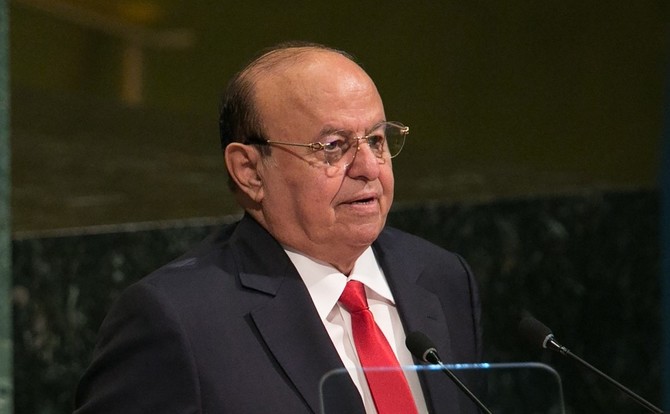DUBAI: Yemeni President Abed Rabbo Mansour Hadi praised on Tuesday the Saudi-led Arab coalition’s role in defending the nation against the Houthi militia as the country marked 28 years of unification between north and south.
Hadi said that after the Iran-backed Houthi militia incited the war, the Saudi-led Arab coalition had prevented the country from collapsing, but rather progressed to restore the legitimate government in a “sincere and courageous Arab brotherly way that the people of Yemen people will never forget,” state news agency SPA reported.
Speaking on the occasion of the 28th anniversary of the formation of Yemen, he added that the he and the Yemeni people should show their joint appreciation to the members of the Arab coalition for what they had achieved so far and continue to do.
The Yemeni president said the unification of north and south Yemen remained the most popular situation and one that reflected the civilization of an ancient people.
He added that deviations from the union failed to undermine its continued existence.














